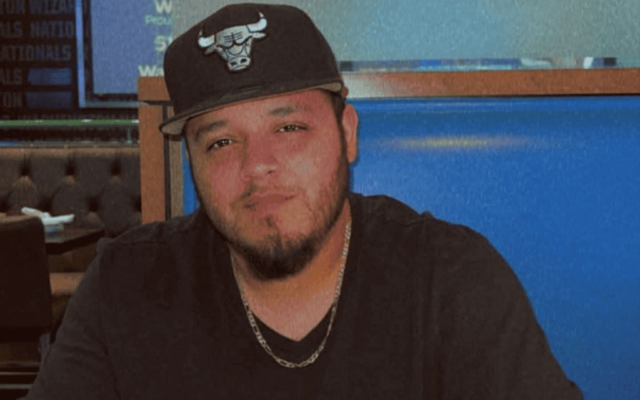The deportation of Kilmar Abrego Garcia, a Salvadoran man with no U.S. criminal record, has ignited a legal and political crisis involving federal courts, the Trump administration and international diplomacy. Despite court orders mandating his return, Kilmar Abrego Garcia remains imprisoned in El Salvador, while U.S. officials invoke national security to justify withholding key information about his case.

The story has become a flashpoint for misinformation, with conflicting narratives surrounding Abrego Garcia’s identity and actions fueling confusion, speculation and political spin. Government statements portray him as a gang member and possible human trafficker, while his legal record tells a different story—one with no criminal convictions, dismissed allegations, and a court-acknowledged fear of persecution. As the case gains national attention, it illustrates how unverified claims and selective disclosures can obscure facts and shape public perception.
Abrego Garcia, 29, lived in Maryland for more than a decade, working construction, raising three children with disabilities, and maintaining yearly check-ins with immigration authorities under a protective legal status granted in 2019 (Associated Press, 2025). A U.S. immigration judge ruled at the time that he could not be deported to El Salvador due to a “well-founded fear” of persecution by local gangs, particularly Barrio 18, which had harassed his family for years (AP, 2025).
In March 2025, Abrego Garcia was deported anyway, sent aboard a plane carrying alleged gang members under a Trump administration crackdown. Officials later admitted the deportation was an “administrative error” but maintained that Abrego Garcia was a member of MS-13, a designated terrorist organization (ABC News, 2025).
The claims of gang affiliation stem from a 2019 police encounter outside a Maryland Home Depot. Local officers cited Abrego Garcia’s clothing, tattoos, and a tip from a confidential informant, but no charges were filed. The informant allegedly linked him to a New York MS-13 clique, despite Abrego Garcia having never lived there (BBC, 2025). The Department of Homeland Security reiterated the MS-13 accusation in a press release, stating that his 2022 traffic stop in Tennessee, where he was transporting eight individuals without luggage, “reeked of human trafficking” (DHS, 2025). No charges were filed in that incident either.
The Supreme Court ruled on April 10 that the government must “facilitate” Abrego Garcia’s return, reinforcing a federal district judge’s earlier order (ABC News, 2025). Yet more than a month later, he remains in Salvadoran custody. U.S. District Judge Paula Xinis has grown increasingly frustrated with the administration’s refusal to disclose its efforts, calling the government’s use of the “state secrets” privilege inadequate and “basically ‘take my word for it’” (PBS, 2025).
During recent hearings, government lawyers said revealing their actions would compromise diplomatic relations and national security. Meanwhile, President Donald Trump publicly declared that he “could” bring Abrego Garcia back but refused to do so, stating, “I’m not the one making this decision” (ABC News, 2025). Attorney General Pam Bondi was more direct, saying flatly, “He is not coming back to our country” (PBS, 2025).

Judge Xinis and a federal appeals court have both ruled that the administration is obligated to prove it is complying with the court orders. Yet Abrego Garcia’s legal team says the vast majority of requested documents are being withheld under various privileges, with only 32 new documents released—many of them related to Sen. Chris Van Hollen’s visit to El Salvador to meet with Abrego Garcia (NBC News, 2025).
Van Hollen, a Democrat from Maryland, traveled to El Salvador and confirmed that Abrego Garcia had been transferred from a supermax prison to another facility. He reported that Abrego Garcia had no access to news or outside communication and remained in legal limbo (ABC News, 2025).
The broader implications of the case are now under scrutiny. Legal experts and civil rights advocates warn that the use of state secrets to block compliance with judicial orders may set a dangerous precedent. “This is not about defending a man,” Van Hollen said in a televised interview. “It’s about defending the rule of law and the right to due process” (ABC News, 2025).
Abrego Garcia’s wife, Jennifer Vasquez Sura, a U.S. citizen, has consistently denied the MS-13 allegations. She previously filed and dismissed a 2021 protection order after what she called a family dispute that was resolved through counseling. “Kilmar has always been a loving partner and father,” she said (AP, 2025).

While legal proceedings continue, Abrego Garcia remains trapped abroad, caught between conflicting narratives and geopolitical gridlock. His legal team has requested further discovery, while the Department of Justice appeals lower court rulings and refuses to release additional information.
Judge Xinis is expected to issue another order soon. Whether it will finally lead to Abrego Garcia’s return—or be met with further resistance—is a question that remains unanswered.
References
- Associated Press. (2025, April 18). Who is Kilmar Abrego Garcia, the man ICE mistakenly deported to an El Salvador prison?
- BBC. (2025, April 30). What we know about Kilmar Abrego Garcia and MS-13 allegations.
- Department of Homeland Security. (2025, April 18). DHS Releases Bombshell Investigative Report on Kilmar Abrego Garcia Suspected Human Trafficking Incident.
- ABC News. (2025, May 13). Timeline: Wrongful deportation of Kilmar Abrego Garcia to El Salvador.
- NBC News. (2025, May 16). Trump attorneys draw judge’s ire by saying ‘state secrets’ keep them from sharing details on Abrego Garcia’s return.
- PBS NewsHour. (2025, May 16). Federal judge will hear Trump administration’s argument to withhold information about returning Kilmar Abrego Garcia to U.S.
- PBS/AP. (2025, May 16). Judge says Trump administration’s ‘state secrets’ explanation is inadequate in Abrego Garcia case.



